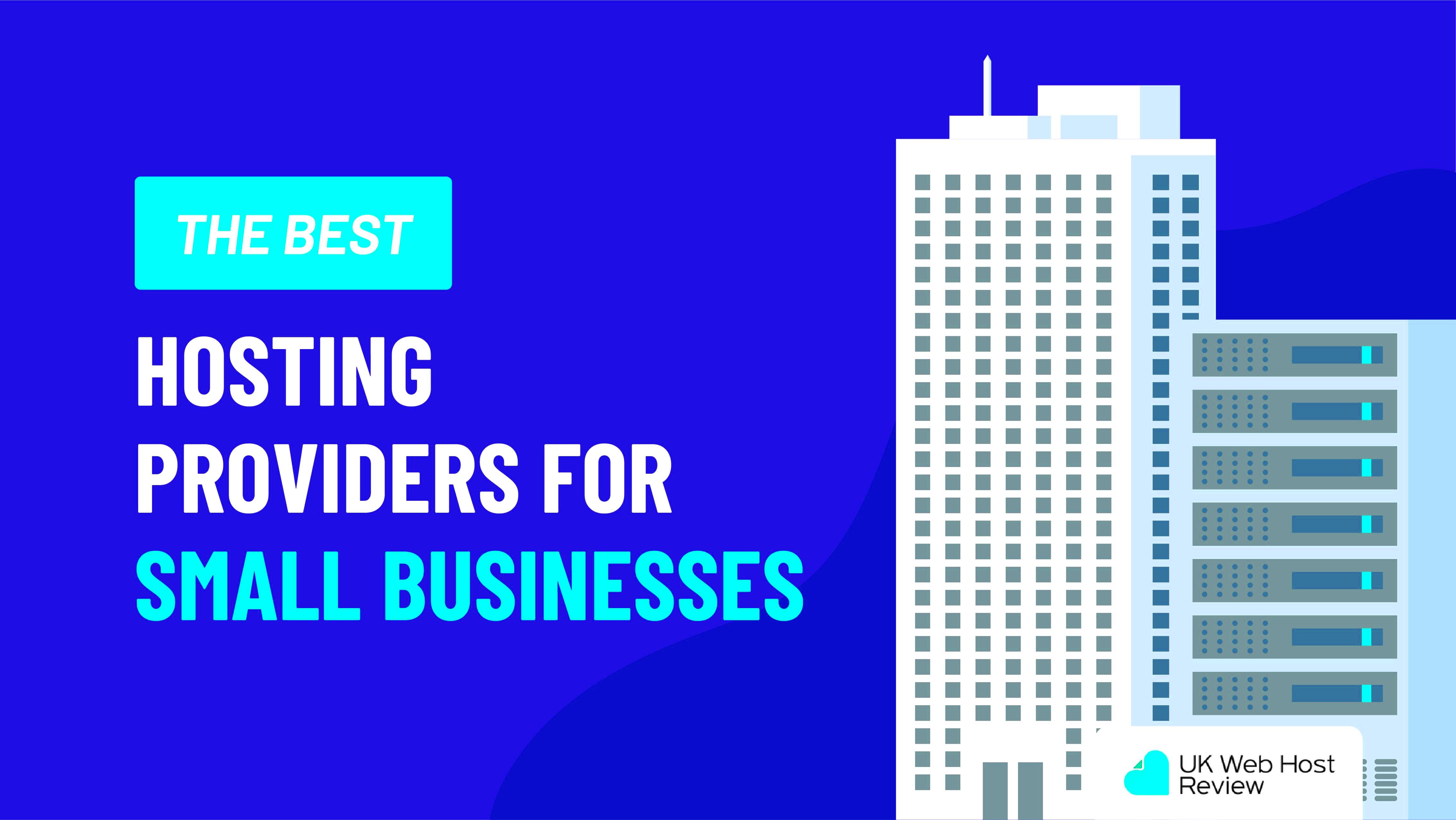When you’re ready to launch your small business website, one of the first hurdles you’ll face is choosing the right hosting platform. Think of hosting as the backbone of your online presence—a space where your website files are stored and delivered to users. A reliable hosting service ensures your website is accessible 24/7, loads quickly, and remains secure against threats. In a world where first impressions matter, finding a suitable host can significantly affect your business’s reputation and success online.
Factors to Consider When Choosing a Hosting Platform

Choosing the right hosting platform isn’t just about picking the most popular option; it involves several key considerations. Here’s a breakdown of the factors you should keep in mind:
- Performance and Speed: A slow-loading website can turn visitors away. Look for platforms that offer solid uptime and fast loading times.
- Customer Support: You’ll want a hosting provider that offers 24/7 support. This is crucial, especially if you run into issues during off-hours.
- Scalability: As your business grows, you’ll need a platform that can scale with you. Check if they offer upgraded plans or additional resources easily.
- Security: Your website will house sensitive data. Opt for hosts that offer SSL certificates, daily backups, and other security measures.
- Pricing: While it’s tempting to go for the cheapest option, ensure you know what features you’re getting for that price. Watch out for renewal fees!
- User-Friendliness: A good hosting platform should be easy to navigate, especially if you’re not tech-savvy. Look for intuitive dashboards and helpful tools.
- Compatibility with CMS: If you plan to use a content management system (CMS) like WordPress, check that your hosting service is compatible.
Taking time to research and evaluate these factors can save you headaches down the line, ensuring you choose a hosting platform that aligns perfectly with your small business needs.
Top Hosting Platforms for Small Business Websites

When it comes to hosting platforms, small businesses have a myriad of options to choose from. However, not all hosting platforms are created equal, and some cater more effectively to the unique needs of small businesses. Here’s a rundown of some of the top hosting platforms that small business owners can consider:
- Bluehost: Widely recognized for its user-friendly interface and reliable uptime, Bluehost is often recommended for beginners. It offers one-click installations for WordPress and provides excellent customer support, making it an ideal choice for entrepreneurs.
- SiteGround: Known for its exceptional customer service and fast loading speeds, SiteGround may be a bit pricier, but it offers an array of features including daily backups and free SSL. This platform is particularly advantageous for growing businesses looking for scalability.
- HostGator: With its affordable plans and a generous money-back guarantee, HostGator is perfect for businesses on a budget. They provide a range of templates and a drag-and-drop website builder, allowing even the least tech-savvy users to create a professional website.
- InMotion Hosting: Offering a robust set of features including incredible speed and optimized security, InMotion is another strong contender. Their introductory prices are competitive, and they also provide free data backups to keep your business safe.
- Wix: Although primarily known as a website builder, Wix also offers hosting services. With its myriad of design templates and drag-and-drop functionalities, it’s perfect for small businesses looking to establish a visually captivating online presence without tech skills.
Comparative Analysis of the Best Hosting Platforms

The right hosting platform can make or break your online success, especially for small businesses. In this section, we will break down some key features of the best hosting platforms so you can determine which one fits your needs best.
| Hosting Platform | Price (Starting from) | Uptime Guarantee | Customer Support | Suitable For |
|---|---|---|---|---|
| Bluehost | $2.95/month | 99.99% | 24/7 Support | Beginners, WordPress Users |
| SiteGround | $3.99/month | 99.99% | 24/7 Support (Chat, Phone) | Growing Businesses |
| HostGator | $2.75/month | 99.9% | 24/7 Support | Budget-Conscious Users |
| InMotion Hosting | $2.49/month | 99.95% | 24/7 Support (Chat, Phone) | Tech-Savvy Users |
| Wix | $14/month | 99.9% | 24/7 Support (Community Forums) | Design-Focused Businesses |
By inspecting these options closely, you can find a hosting solution that not only fits your budget but also meets your expectations in terms of performance and support. Whether you’re just starting or scaling up, there’s a perfect platform waiting for your business!
Budget-Friendly Hosting Options
When you’re starting a small business, every penny counts, and choosing the right hosting platform can significantly impact your budget. Fortunately, there are plenty of affordable hosting options available that don’t compromise on quality. Here are some budget-friendly hosting options worth considering:
- Shared Hosting: This is one of the most economical hosting options. Multiple websites share the same server resources, which significantly reduces costs. Providers like Bluehost and HostGator offer packages starting at just a few dollars a month.
- C WordPress Hosting: If you’re using WordPress, managed WordPress hosting services such as SiteGround or DreamHost can be both affordable and efficient. They often include features tailored specifically for WordPress users.
- Cloud Hosting: For a slightly higher price, cloud hosting provides scalability and reliability. Platforms like DigitalOcean and A2 Hosting allow you to pay based on usage, making it a flexible choice for growing businesses.
- Website Builders: Tools like Wix or Squarespace offer all-in-one solutions, including hosting. While not traditional hosting in the sense, they offer affordable plans that let you build and launch your website without hassle.
Remember to read the fine print, as some budget plans may have limits on bandwidth or storage. Always ensure that you choose a reputable provider with excellent customer service, as this can save you time and hassle down the road!
Managed vs. Unmanaged Hosting: What’s Best for You?
When diving into the world of web hosting, you’ll encounter two primary types: managed and unmanaged hosting. Both come with their own sets of pros and cons, so it’s important to understand which option caters best to your needs.
| Feature | Managed Hosting | Unmanaged Hosting |
|---|---|---|
| Support | Comprehensive support readily available to handle everything from setup to maintenance. | Limited support; you’ll need to troubleshoot most issues on your own. |
| Management of Resources | Server maintenance, backups, and updates are typically managed by the host. | You take full responsibility for server management, including updates and security. |
| Cost | Generally more expensive due to the added services. | More affordable, but costs can add up if you need to hire help. |
| Technical Skills Required | Minimal tech skills needed; user-friendly interfaces make it accessible. | Higher technical skills required; ideal for experienced users. |
If you’re a small business owner without IT skills, managed hosting could save you a lot of time and stress. You’ll have peace of mind knowing experts handle everything. On the other hand, if you’re tech-savvy and on a tight budget, unmanaged hosting can offer more control and flexibility, albeit with added responsibility.
Ultimately, the best choice depends on your budget, technical skills, and the time you’re willing to invest in managing your hosting services.
7. Customer Support and Resources
When it comes to hosting platforms for small businesses, one of the most critical aspects to consider is the level of customer support and resources they offer. After all, when you’re running a business, the last thing you want is to be bogged down by technical issues without a reliable support system to help you out.
Most reputable hosting providers offer various channels for support, including:
- Live Chat: Instant communication with a customer service representative can quickly resolve issues.
- Phone Support: Speaking to someone directly can be comforting, especially for more complicated problems.
- Email Support: Perfect for less urgent queries; however, response times may vary.
- Knowledge Base: A well-organized repository of articles, FAQs, and guides can empower you to troubleshoot common issues independently.
- Community Forums: Engaging with other users can offer unique insights, solutions, and even encouragement during tough times.
Beyond just support, look for platforms that invest in educational resources. Tutorials, webinars, and even customer success stories can provide invaluable insights into how to maximize your hosting experience. Some platforms even offer dedicated account managers who can proactively help you optimize your site and improve your online presence.
Choosing a hosting provider with robust customer support can save you time and headaches down the line, allowing you to concentrate on what really matters: your business.
8. Conclusion: Choosing the Right Platform for Your Business
In conclusion, selecting the best hosting platform for your small business is no small task, but it’s one that deserves time and attention. With so many options available, it’s essential to weigh various factors to ensure you’re making an informed decision. Start by assessing the specific needs of your business
Some critical considerations include:
- Budget: Determine how much you can afford to spend monthly or yearly.
- Scalability: Make sure the platform can grow along with your business.
- Ease of Use: A user-friendly interface can help you manage your website without a steep learning curve.
- Performance: Look for hosting providers with good uptime records and fast load times.
- Security Features: Ensure the platform includes essential security measures to protect your site.
Even after considering these factors, the ideal choice will ultimately depend on your unique business requirements. Take the time to read reviews, participate in free trials, and even consult with fellow business owners if you can. Your website is often the first impression potential customers will have of you, so investing in a reliable hosting platform is a crucial step toward success. Whether you prioritize support, speed, or features, the right hosting platform can make a significant difference in your business journey.



